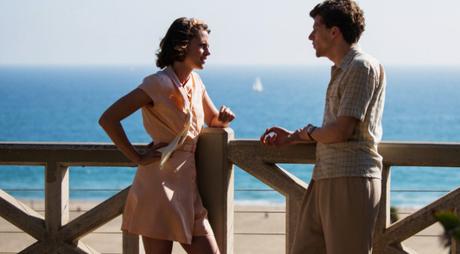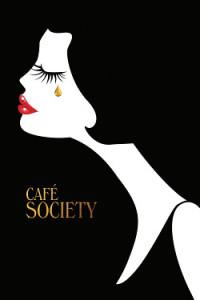
Review: Since the acclaimed , writer/director/playwright/stand-up comedian, Woody Allen hasn't stopped crafting films annually. His latest tenure, Café Society- his 47th film or 39th after his Best Director winning-is a star-studded, light romance set in the 1930s Hollywood, which bears his trademark comic elements and dialogue-heavy narrative.
Café Society bears Allen's formulaic love story which emanates more than affection but also satire-in this case, to Hollywood as an industry and to the nature of romance itself. While the clever goofiness in Allen's script is unarguably impressive and his attention to details in direction is astounding, it's inevitable that, as the story goes, this Allen-esque formula fatigue embarks.
Opened with a great reenactment of Hollywood golden era kind of conversations-glam, pretentious and proud, Allen introduces us to Bobby Dorfman (Jesse Eisenberg), a young Jewish man. Bobby moves from New York City to Los Angeles in order to work with his uncle, Phil Stern (Steve Carell), an influential agent. Bobby immediately is smitten to Phil's secretary, Vonnie (Kristen Stewart) for her unpretentiousness; unfortunately, Vonnie has already been in a relationship with someone.
Allen's slick writing leads a clumsy, quirky man, portrayed effortlessly by Eisenberg, into a tough woman, in this case, Stewart. Intertangling two opposite characters, who attract each other is what Allen do best; this time, he makes it challenging by adding another layer, making it a complicated love triangle (which, in the end grows in size being a love rectangle).
As if the comic romance between Bobby and Vonnie isn't grand enough, Allen expands the cosmic romance with more side stories attached to the established love triangle. The story goes around Bobby's core family, including some anecdotes about his elder sister, Evelyn (Sari Lennick) and her marriage to a soft man, Leonard (Stephen Kunken), also the involvement of Bobby's gangster brother, Ben (Corey Stoll). While those side stories add more layers about Bobby's background as well as they provide period spoof and nudge to the socio-cultural behavior of the era; they do not add up perfectly with the main track.
Café Society might be muddled in storytelling and pointed out predictability around the end, but it benefits from the cast which emanates unrivalled charms and the precious details from retro-Hollywood which looks authentic. While being dialogue-heavy and hilariously satirical at many points, this film surprisingly tells more story than soft-criticism. And, that's where I though there's a syndrome called Woody Allen fatigue.
Even so, Café Society is still layered with Allen's most wanted jazzy tones, posh art direction, presentation of the eloquent period piece, and, this time, a series of One-Perfect-Shot cinematography which accompany the witty dialogues hypnotizing audiences and distracting them from predictability and stagnancy the plot posts.
Café Society (2016)


Drama, Comedy, Romance Written & Directed by:
